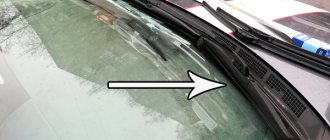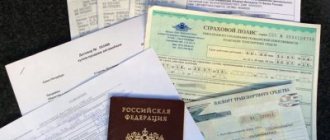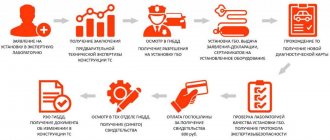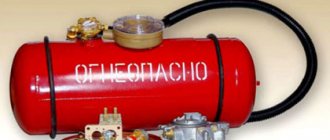The need to register a car with the traffic police sooner or later faces almost any car owner. Both to individuals and legal entities. The procedure for registering vehicles is almost the same for ordinary citizens and organizations, however, legal entities must provide a much wider range of documents to the traffic police department. This is where the main problem lies, since not all organizations have a good idea of what exactly these documents should be.
Procedure for registering a vehicle as a legal entity
It doesn’t matter exactly how the car was received by the organization - under a sales contract, as a gift, by winning a competition. In any case, the vehicle must be registered with the traffic police within 10 days after it is transferred to the company’s balance sheet. The exception to this rule is transit numbers. You are allowed to drive with them without registration for up to 20 days after receiving ownership of the car.
There is no need for the previous owner to deregister the car (if the car already had an owner). This happens automatically as part of the procedure for re-registration of the vehicle by the new owner.
To register a car, the company must send its authorized person (employee) to the traffic police department with a full package of necessary documents. A legal entity has the right to choose any branch of the State Traffic Inspectorate for this procedure, without reference to the address of its head office.
Car registration includes a number of mandatory steps:
- Obtaining an MTPL insurance policy. To complete it, you will need to provide employees of the insurance organization with a document certifying the organization’s ownership of the car, as well as a technical passport (PTS), which will indicate all the characteristics of the car, including unique numbers of the frame, chassis, engine and other components;
- Passing a technical inspection. Without a diagnostic inspection card, it will not be possible to register a car with the traffic police (even a completely new one) and get new license plates for it. Inspection of used cars takes more time, since the maintenance employee is obliged to check the body, engine and chassis numbers with his database to determine whether the car is wanted or stolen;
- Contacting the traffic police department to write an application for vehicle registration. The application form (its front side) can be filled out either at the department itself, or downloaded in advance using the link at the end of the article, and then completed in a relaxed atmosphere;
- Receive a pass to pass the queue. The coupon is taken at the State Traffic Inspectorate office in a special electronic terminal. After selecting the menu section “Registration of transport for legal entities”, the terminal will issue a coupon with a serial number and a window where you should apply with documents in order;
- After submitting the application and documents, the traffic police officer will check them for authenticity , and will also check information about the vehicle and its owner against electronic databases. At this stage, a visual inspection of the car will be carried out to verify the numbers of its main units;
- Payment of the state fee for registration. If no problems arise when checking documents and inspecting the car, the inspector will issue permission to obtain new license plates (or re-register a car with old license plates). The receipt for payment of the duty received from the inspector should be redeemed at the nearest bank branch or in a special electronic terminal;
- Vehicle registration. After presenting a receipt for payment of the state duty, the car will be officially registered.
How long will the car registration procedure take?
State Traffic Inspectorate employees have their own official regulations, which require spending a certain amount of time on each procedure within the framework of car registration for legal entities.
If you do not take into account the time that will be spent by the organization on preparing all the necessary documentation, obtaining an MTPL insurance policy and passing a technical inspection, registering a car at the traffic police department will take no more than 90 minutes, namely:
- accepting an application for vehicle registration - 5 minutes;
- checking documents about the car and its owner on the computer - no more than 20 minutes;
- visual inspection of the car - 20 minutes;
- the final decision on whether the car can be registered - a maximum of 10 minutes;
- preparation of documents for vehicle registration if the result is positive - 10 minutes;
- final check of all documents - 5 minutes;
- entering information about the owner of the car and the car itself into the traffic police electronic database - 10 minutes;
- issuing new numbers (if necessary) - no more than 10 minutes.
A few words about submitting an application for vehicle registration. This can be done not only directly at the traffic police department, but also remotely using the official State Services portal. In the latter case, you need to select the block on the main page of the resource, and then “Vehicle registration”.
The application form for car registration is the same for individuals and legal entities. However, legal entities must fill it out in a slightly different way. A sample of filling out the application form by a legal entity is provided at the link at the end of the article.
In the application, it is important to indicate a complete list of all documents attached to it (the “Appendices” section of the form), as well as provide detailed information about the legal entity on whose balance sheet the car is located.
A law on car registration bypassing the traffic police was adopted
On July 25, the State Duma of the Russian Federation adopted in the final third reading the law on state registration of vehicles, initiated by several former senators. The document involves, in particular, depriving the traffic police of the function of registering new cars. As the authors of the bill introduced to the State Duma back in 2011 noted, the new norms “will help reduce the black market, including stolen cars.” In general, vehicle registration is significantly simplified: for example, new cars can be registered with authorized organizations, for example, directly with car dealers. Moreover, thanks to the introduction of a unified state vehicle accounting information system, registration actions are allowed to be performed regardless of the place of residence of the citizen - the owner of the car (or the place of registration of the legal entity).
However, the new law imposes special requirements on dealers who have the right to issue registration plates. They will have to have the status of a specialized organization included in a special register, they will need to enter into an agreement with machine manufacturers, have appropriately equipped premises and a staff of qualified employees.
It is noteworthy that the original text of the bill contained a provision on the possibility for the owner to choose any alphanumeric designation of the vehicle registration plate he liked, but during the consideration of the document it was excluded. Instead, the law allows the car owner to retain previously received plates or transfer them with the alienated vehicle.
However, the traffic police does not completely avoid this process - the inspection will assign a combination of letters and numbers, and the buyer of a new car will be able to obtain the signs themselves from the direct manufacturer, whose role will again be private companies listed in a separate register.
The document enshrines an important rule according to which a person under the age of 16 has no right to own a car. It is also envisaged that a so-called electronic passport can be issued for a car - and it will be registered with it.
The law also establishes the only specific ground for refusal to register a car: the presence of signs indicating a change (“interruption”) of the vehicle identification number, but there cannot be any other grounds.
What documents will be needed to register a car with an organization?
The full list of documents is specified in Order of the Ministry of Internal Affairs of Russia dated August 7, 2013 No. 605. In addition to the application for registration, the traffic police inspector will need to present:
- a power of attorney to carry out registration actions with a vehicle, issued in the name of one of the organization’s employees (signed by the general director of the company);
- passport of a citizen of the Russian Federation (authorized person);
- documents for the vehicle, registration certificate (CTC) from the previous owner and technical passport (PTS);
- certificate of ownership of the car (sale and purchase agreement, deed of gift, extract from the separation balance sheet, etc.);
- MTPL insurance (can be in electronic form);
- an extract from the Unified State Register of Legal Entities containing basic information about the organization;
- a copy of the payment order with execution for payment of the state duty for registering the car.
Several more documents will have to be prepared if the car is delivered at the registration address of a separate division of the company. We are talking about the following documents:
- a certificate of assignment of a TIN to a separate division of the company at the place of its registration;
- internal documents of a legal entity on the creation of a separate division;
- certificate of entry into the state register and registration of a separate division (representative office, correspondent office, branch);
- an order on behalf of the head of the company to provide his separate division with a car.
Particular attention should be paid to the correct execution of a power of attorney for car registration, since heads of organizations rarely do this on their own.
Not only company managers, but also other authorized persons have the right to issue powers of attorney. As a rule, one power of attorney is issued only for the registration of one car. But you can also include several cars and other special equipment in the document. In this case, you will need to provide complete information about each technical means.
Types of registration actions and the procedure for their implementation
Registering a car, deregistering it, issuing duplicates of lost registration documents, registration plates, vehicle passports, etc. are registration actions and they are performed in the registration departments of the traffic police. Persons who violate the Registration Rules are liable in accordance with current legislation. Types of registration actions Registration units of the State Traffic Safety Inspectorate carry out (clause 2.1. Registration Rules): • registration (registration) of vehicles and issue registration certificates and registration plates; • change of registration data; • deregistration of vehicles; • issuance of vehicle passports; • issuance of registration plates “Transit”; • temporary registration of the location of vehicles; • issuance of duplicates of registration documents, registration plates, vehicle passports (to replace those that are lost, unsuitable for use, do not correspond to established standards, or whose validity has expired); • issuing technical inspection certificates for vehicles; • issuance of documents for released vehicle license plates; • issuance of certificates (at the request of government bodies - courts, prosecutors, etc.). Vehicles subject to registration with the State Traffic Safety Inspectorate Registration rules establish a uniform procedure for registering motor vehicles with an engine capacity of more than 50 cubic meters with the State Traffic Safety Inspectorate throughout the Russian Federation. cm and a maximum design speed of more than 50 km/h and trailers for them intended for driving on public roads (clause 1.1 of the Registration Rules). Vehicles belonging to any organizations, citizens of the Russian Federation, foreign legal entities and citizens, stateless persons are subject to registration. The rules also apply to vehicles registered in other states and temporarily imported into the Russian Federation for a period of more than 6 months. Vehicles that were previously registered with the traffic police departments and have not been deregistered at the place of registration will not be accepted for registration (clause 1.17 of the Registration Rules). Vehicles not subject to registration with the State Traffic Safety Inspectorate The following vehicles are not registered: • made from components, equipment, spare parts, accessories that have not been certified for compliance with the rules, regulations and standards in force in the Russian Federation; • the design of which or changes made to the design do not comply with the requirements of the rules, regulations and standards in force in the Russian Federation regarding road safety or the submitted documents (clause 1.17 of the Registration Rules). Temporarily imported vehicles Vehicles registered in other countries and temporarily located on the territory of the Russian Federation for a period of up to 6 months are subject to registration with the customs authorities of the Russian Federation (clause 2 of the Decree of the Government of the Russian Federation of August 12, 1994 No. 938). Other vehicle registration authorities Tractors, self-propelled road-building and other machines and trailers for them are subject to registration with state authorities supervising the technical condition of self-propelled vehicles and other types of equipment in the Russian Federation (clause 2 of the Government of the Russian Federation of August 12, 1994 No. 938 ). Vehicles of the Armed Forces of the Russian Federation and other troops are subject to registration in the automobile services of the Armed Forces of the Russian Federation and other troops. The procedure for making changes to the design of vehicles Making changes to the design of vehicles is regulated by the document “The procedure for monitoring changes to the design of vehicles registered with the State Road Safety Inspectorate of the Ministry of Internal Affairs of the Russian Federation,” approved by the Order of the Ministry of Internal Affairs of the Russian Federation of December 7, 2000. No. 1240. You must submit an application for changes to the design of the vehicle to the traffic police department at the place where the vehicle is registered. The statement details the changes being made to the design. Based on the results of consideration of the application by the traffic police department, an appropriate decision is made, which indicates: • the procedure and conditions for registration and issuance of a certificate of compliance of the vehicle with safety requirements, • as well as the need to obtain an opinion on the possibility and procedure for making changes to the design. If the decision provides for obtaining an opinion, then the decision also lists the organizations where it can be obtained, and the owner of the vehicle needs to contact these organizations. A conclusion is not required in the following cases: • the vehicle, after changes made to its design, corresponds to a duly certified vehicle of the same brand and the same manufacturer; • the changes made are provided for in the List of changes to vehicle designs, which can be carried out without submitting a conclusion on the possibility of making changes to the design, but with the permission of the State Traffic Safety Inspectorate. The list of such changes is given in Appendix No. 2 to the Procedure for Controlling Changes. Procedure for performing registration actions To perform registration actions, you must submit: an application and the necessary documents, properly executed; vehicle (except for cases of its disposal); • vehicle registration plates or Transit registration plates. The applicant can be the owner of the vehicle or his representative, i.e. if you are the owner of the car, then you can issue a power of attorney with the right to perform registration actions. In the registration department of the State Traffic Safety Inspectorate: • the identity of the applicant is established and the authority of the representative is checked; • documents certifying ownership and (or) vehicle passport are checked; • the vehicle is inspected and checked. After this, the appropriate registration actions are performed (issuing a registration certificate, a vehicle passport, making changes to them, etc.). Refusal to carry out registration actions The State Traffic Safety Inspectorate is obliged to inform applicants in writing about a refusal to carry out registration actions, indicating the reasons for the refusal (clause 3.36 of the Registration Rules).
Owners of vehicles who consider the registration action or refusal to perform a registration action to be incorrect have the right to file a complaint (clause 1.21 of the Registration Rules) • to a higher internal affairs body (i.e., to the REO department of the city (regional) State Traffic Safety Inspectorate) • or to the court . On topic: Inspection of vehicles and verification of vehicle documents










